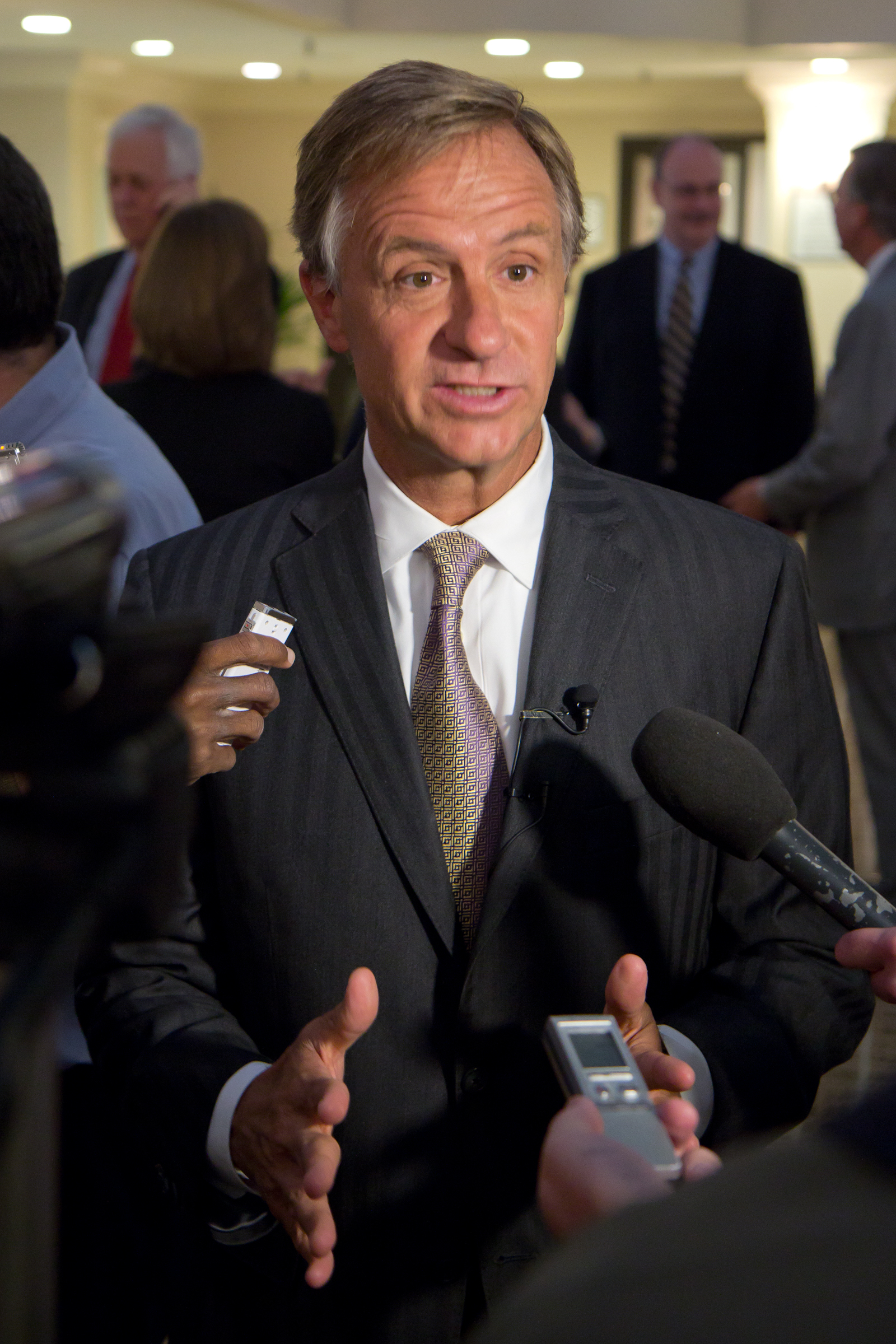STATE OF THE STATEGov. Bill Haslam will deliver his annual State of the State address at 7 p.m. today before a joint session of the state House and Senate.
NASHVILLE -- State tax revenues are on the mend, but Gov. Bill Haslam and GOP legislative leaders are trying to throw a wet blanket on any would-be celebrations in advance of Haslam's release today of his proposed 2012-13 budget.
While collections are rebounding from the beating they took in the Great Recession and its aftermath, they won't return to 2008 levels until 2014, officials say. And by that time, inflation will have whacked away at state purchasing power by some 10 percent, they say.
In his State of the State address tonight, Haslam also plans to outline his policy proposals for "moving Tennessee forward."
Spokesman David Smith said the governor "will present a balanced budget that reflects his priorities and includes strategic investments, necessary reductions and savings for the future."
Several Haslam proposals are controversial.
They include gutting most civil service protections for thousands of state employees, freeing local public school systems to pay teachers what they please and ending many standards on classroom size.
He may decide to shutter the Taft Youth Center in Pikeville, though Republican and Democratic lawmakers are united in opposition.
That recommendation stems from the governor's "top to bottom" review of state operations, which is expected to play out in abolishing a number of state jobs.
Other Haslam agenda items include the first step in a multiyear plan to lower the 5.5 sales tax on food to 5 percent, while raising the inheritance tax exemption from $1 million to $5 million.
The first-year steps would cost $18 million and $14 million, respectively.
Haslam also hopes to boost funding in state FastTrack grants for economic development. How much will become clearer today.
There is room for some optimism on the budget, now at $31.6 billion in state and federal funds.
Revenue growth in the general fund could exceed current-year projections by as much as $565 million, according to the State Funding Board.
House Majority Leader Gerald McCormick, R-Chattanooga, said that "hopefully makes for some easing on the cuts we're going to have to make, although he [governor] has said there are cuts we're going to have to make."
But Lt. Gov. Ron Ramsey, R-Blountville, said the new revenue won't solve everything in a state that weathered the worst recession since World War II using the proverbial baling wire and chewing gum -- or in this case, federal stimulus funds, state reserves and big cuts in employees, grants and services.
"People need to understand, though, that when we say revenues are up, it's all relative," Ramsey cautioned last week.
Senate Speaker Pro Tempore Bo Watson, R-Hixson, agreed.
"The patient is doing better, but the patient is not well," he said.
Pain and gain
The pain is expected to come from all sides.
Haslam's focused agenda on cutting taxes ($32 million) and economic development will cost. He wants to spend another $6 million on a crime package that includes provisions targeting gangs.
That and other competing needs could have Chattanooga Mayor Ron Littlefield and local legislators hustling if Littlefield's own proposed gang-busting legislation proves too costly.
Fixed costs also are going up.
The school funding formula needs about $55 million to cover inflation and growing enrollment. Add another $40 million or so for employee health insurance.
Haslam is expected to ask lawmakers to begin refilling the state's Rainy Day emergency reserve, which fell from $785 million to $300 million during the recession.
He also must decide what to do about a number of key services that have been kept going with $160 million in temporary funding.
If he decides to grant state workers, teachers and higher education employees a raise, it will cost $55.2 million for just a 1 percent increase.
Meanwhile, the state's hospital industry, which has voluntarily helped prop up TennCare with a 4.52 percent assessment on its revenues, is opposing Haslam's proposal to hike the fee further to help stave off other health care cuts.
Among those is a cut in reimbursements for group homes operated by Chattanooga's Orange Grove Center, which serves developmentally disabled children and adults.
Higher education leaders have floated a five-year, $2.1 billion proposal to fund new buildings and maintenance. The state's share would be about $1.8 billion, which would come through bonds.
"There's no way we're going to get to that point," Ramsey said last week.
McCormick and others also note that the state will have to spend more beginning in 2014 for TennCare as a result of the new national health care law. That is projected to cost $200 million.

